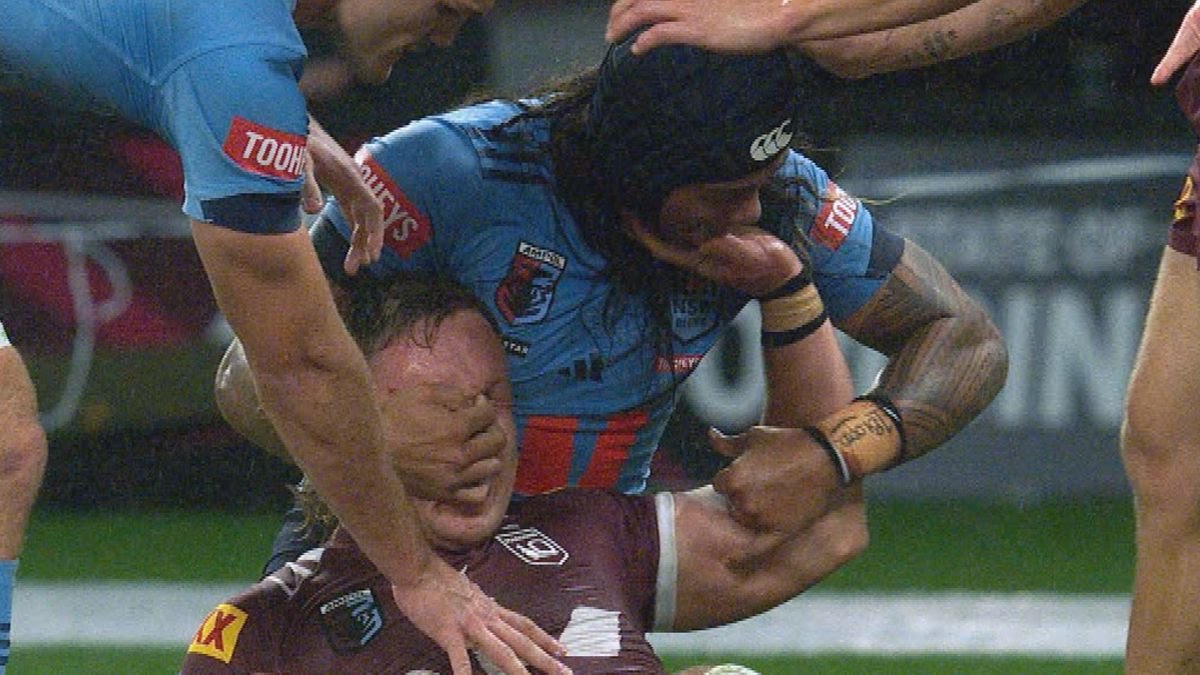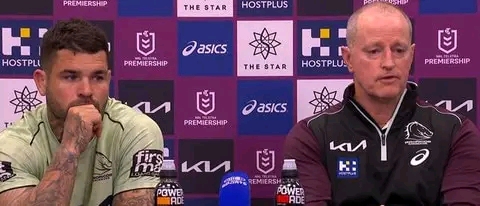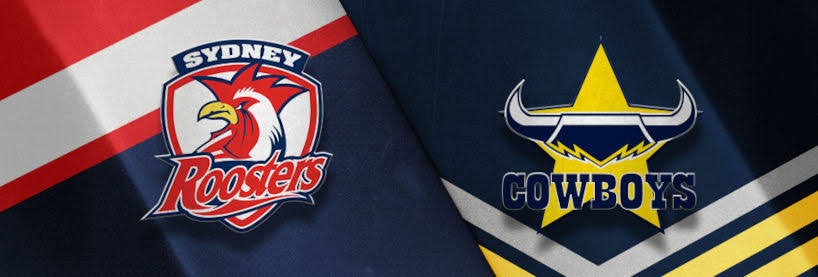Jarome Luai Fined for Controversial Contact as NSW’s Costly Errors Hand Queensland the Advantage
In a fiery State of Origin clash, New South Wales playmaker Jarome Luai has copped a financial penalty after being placed on report for an ugly incident involving Queensland’s Reuben Cotter. The match review committee fined Luai 13 percent of his match payment for an act that many believed resembled an eye gouge—a moment that Andrew Johns conceded on air “looked bad.”
The incident was one of several chaotic and undisciplined plays by NSW during a turbulent first half. These lapses proved decisive, giving the Maroons the upper hand early on and putting the Blues in a deficit they were unable to recover from.
With just five minutes left before halftime, NSW appeared to be mounting a comeback. Star halfback Nathan Cleary had the crowd on its feet after dancing through defenders and brushing off Kalyn Ponga to cross the try line in what looked like a much-needed turning point for the Blues. However, replays told a different story.
In the lead-up, prop Stefano Utoikamanu ran a decoy line and inadvertently obstructed Queensland’s Pat Carrigan. Although Utoikamanu had pierced the defensive line and then started retreating toward an onside position, his path back interfered with Carrigan’s ability to defend, and the try was disallowed by the Bunker.
“It looked a little too easy,” noted Cameron Smith during the broadcast, underscoring how crucial the obstruction call was. The penalty negated what could have been a momentum-shifting moment for NSW and added to their catalogue of first-half blunders.
This wasn’t an isolated incident either. Earlier, in the 17th minute, second-rower Liam Martin had his own brief meltdown. First, he fired up the home crowd by smashing Tino Fa’asuamaleaui and forcing a knock-on. Martin celebrated emphatically, seemingly trying to spark energy into his side. However, just moments later, in NSW’s attacking set, Martin lost control of the ball under heavy contact from Valentine Holmes. The unforced error gifted Queensland possession, and they capitalized quickly—scoring their second try of the night through Hamiso Tabuai-Fidow, pushing the score to 12-6 in the Maroons’ favor.
Then came Luai’s controversial moment in the 22nd minute. As tempers flared, cameras captured the NSW five-eighth seemingly putting his hands in the face of Reuben Cotter during a tackle. The footage was enough for the officials to place him on report, and while post-match analysis suggested the freeze frame made it appear worse than it may have been in real time, it still prompted heavy scrutiny.
“It looked bad,” Andrew Johns said in commentary.
Cameron Smith, providing expert analysis, predicted that a fine was the likely outcome. Ultimately, the match review committee agreed and charged Luai with grade two contrary conduct. He avoided suspension but did not escape financial penalty.
Just after that, the Blues continued their trend of poor discipline. Back-rower Angus Crichton, who plies his trade for the Roosters, was penalized for a high shot—ironically on his club teammate, Robert Toia. Crichton’s mistimed tackle gave Queensland even more field position, further compounding NSW’s struggles.
Five minutes later, the Blues were again penalized—this time through winger Zac Lomax, who was placed on report for elbowing Trent Loiero in the head during a tackle. It was an act of frustration, according to Smith, who labeled the incident as “ill-discipline” on Lomax’s part. Loiero was forced from the field for a head injury assessment (HIA), and Queensland was awarded a penalty, which Valentine Holmes converted to stretch the lead to 14-6.
Lomax was subsequently charged with grade one dangerous contact and fined seven percent of his match payment—another dent in an already demoralizing evening for the Blues.
All these moments reflected a broader issue in the NSW camp—an inability to remain composed in the high-pressure Origin environment. While individual brilliance surfaced at times, the game was defined by missed opportunities, poor discipline, and mental lapses. The Blues’ aggressive and emotional playstyle backfired, leaving the Maroons to control proceedings and exploit every error.
The overall story of the match was not just one of Queensland’s clinical finishing but also of NSW’s unraveling. The series of fines and on-field errors showcased a lack of discipline that has become an unfortunate pattern for the Blues in recent Origin history.
Despite having enough talent to match the Maroons, NSW continually undermined their own efforts. The disallowed Cleary try was a textbook example of how a minor lapse in positional awareness—in this case, Utoikamanu’s obstruction—can cancel out a moment of brilliance. Likewise, the penalties conceded by Crichton and Lomax and Luai’s controversial face contact only fed Queensland’s momentum.
By halftime, Queensland had opened up a comfortable buffer, one that NSW struggled to close in the second half. The Maroons’ ability to keep their cool and capitalize on their opponent’s mistakes ultimately proved the difference.
In the post-match wash-up, the fines and reports may dominate headlines, but the underlying story remains a familiar one for NSW: an inability to execute under pressure, an overreliance on emotional energy, and moments of individual error that leave the team chasing the game.
As Luai, Lomax, and others now deal with the consequences off the field, NSW’s coaching staff will be left with the difficult task of tightening discipline and refocusing the team for the next challenge—knowing that Origin football punishes even the smallest lapses.



